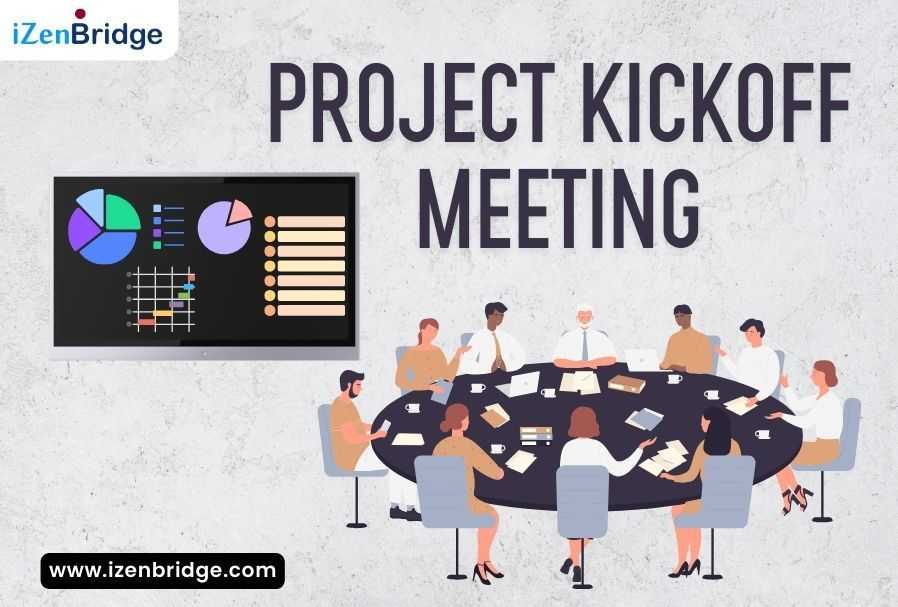

A project kickoff meeting is a critical event in the lifecycle of any project, serving as the formal starting point where the project team, stakeholders, and sponsors align on project objectives, scope, roles, responsibilities, and processes. This meeting sets the tone for the entire project, ensuring everyone involved has a shared understanding of the project’s goals and how it will be executed. In this article, we’ll explore the key elements of a successful project kickoff meeting, drawing insights from a detailed discussion in Episode 38 of the PMP Exam Prep Power Hour and a sample presentation used for educational purposes.
A project kickoff meeting is the first official meeting between the project team and the key stakeholders, where the project manager introduces the project, clarifies objectives, discusses the project plan, and establishes a foundation for communication and collaboration. The primary purpose of this meeting is to ensure that all parties are aligned on the project’s vision, goals, and approach, and to set expectations for the project’s progress.
Importance of the Kickoff Meeting
The project kickoff meeting is essential for several reasons:
The timing of the kickoff meeting can vary depending on the project’s complexity and duration. Generally, it is recommended to hold the kickoff meeting within the first week of the project. For shorter projects, the kickoff meeting might be scheduled within the first few days. For longer or more complex projects, it might be reasonable to allow up to two weeks to gather the necessary information and stakeholders.
Preparing for the Kickoff Meeting
As the project manager, you are responsible for planning and conducting the kickoff meeting. Preparation is key to a successful meeting. Here are the steps you should follow:
Conducting the Kickoff Meeting
During the kickoff meeting, follow the agenda to ensure that all critical topics are covered. Here’s a breakdown of the main sections of a typical project kickoff meeting:
Sample Kickoff Meeting Presentation
To aid in understanding, a sample kickoff meeting presentation has been provided. This sample is designed to guide project managers through creating effective kickoff meeting slides. The presentation covers all the critical elements discussed above and is adaptable to various project types and organizational templates.
Download the Sample Presentation: Sample Project Kick-Off Meeting Presentation (PPT/PDF)
This template can be customized to fit the specific needs of your project and organization. It provides a solid foundation for ensuring that your project starts on the right foot.
Do we need to conduct a kickoff meeting in adaptive or hybrid life cycles?
Yes, a kickoff meeting is essential even in adaptive or hybrid life cycles. While these approaches may involve more iterative planning and continuous refinement, the kickoff meeting ensures that all stakeholders and team members are aligned on the high-level goals and framework for the project. It sets a common understanding before diving into detailed discussions like user stories or backlog refinement.
Does the client need to attend the kickoff meeting?
It depends on the project’s nature and the client’s role. In some cases, the client’s presence is crucial for setting high-level goals and expectations. This is particularly beneficial for fostering a shared understanding and establishing a strong working relationship. However, there may be scenarios where the kickoff meeting is conducted internally first, with a separate session involving the client later.
Is a kickoff meeting mandatory for every project?
While a kickoff meeting is highly recommended, especially in projects with new teams, complex scopes, or multiple stakeholders, there can be exceptions. For example, if the project is a continuation of previous work with the same team, a formal kickoff might not be necessary. However, it’s crucial to ensure that all parties have a shared understanding of the project’s goals, whether through a formal meeting or another communication method.
The project kickoff meeting is a foundational event that significantly influences the success of a project. By ensuring that all stakeholders and team members are aligned on the project’s goals, scope, and approach, the kickoff meeting helps prevent misunderstandings and sets the stage for effective project execution. With thorough preparation and clear communication, the project manager can use the kickoff meeting to build momentum and confidence in the project’s success.
Use the insights and resources provided in this article to conduct a successful project kickoff meeting and set your project on the path to success. Join our PMP program to accelerate your exam preparation and elevate your project management skills, ensuring you are fully equipped to succeed in your certification journey and beyond.